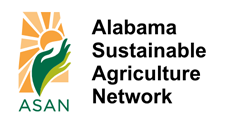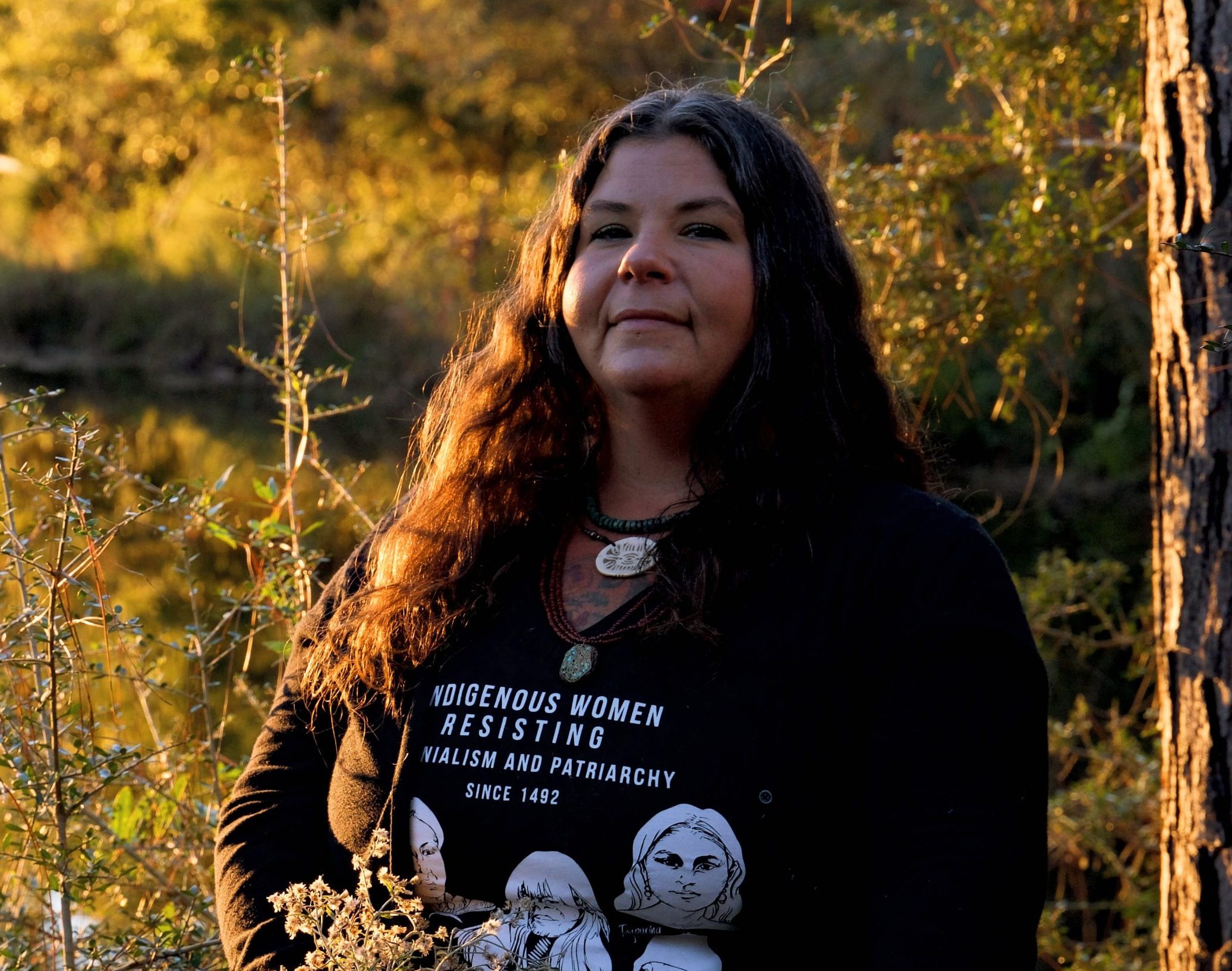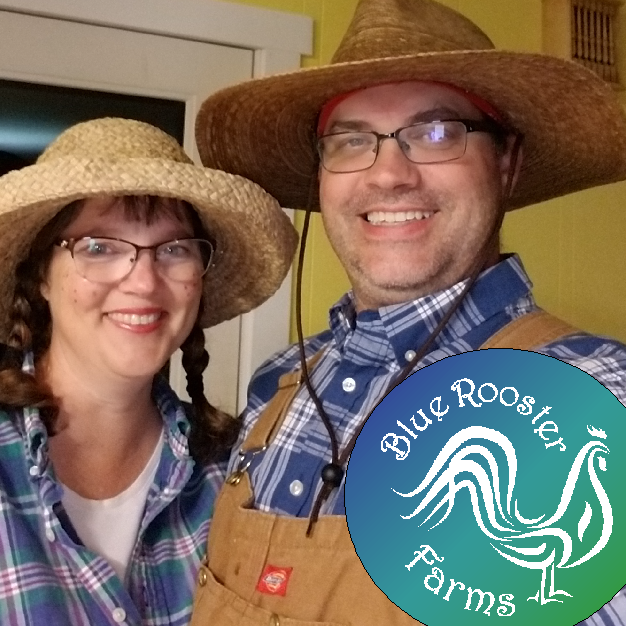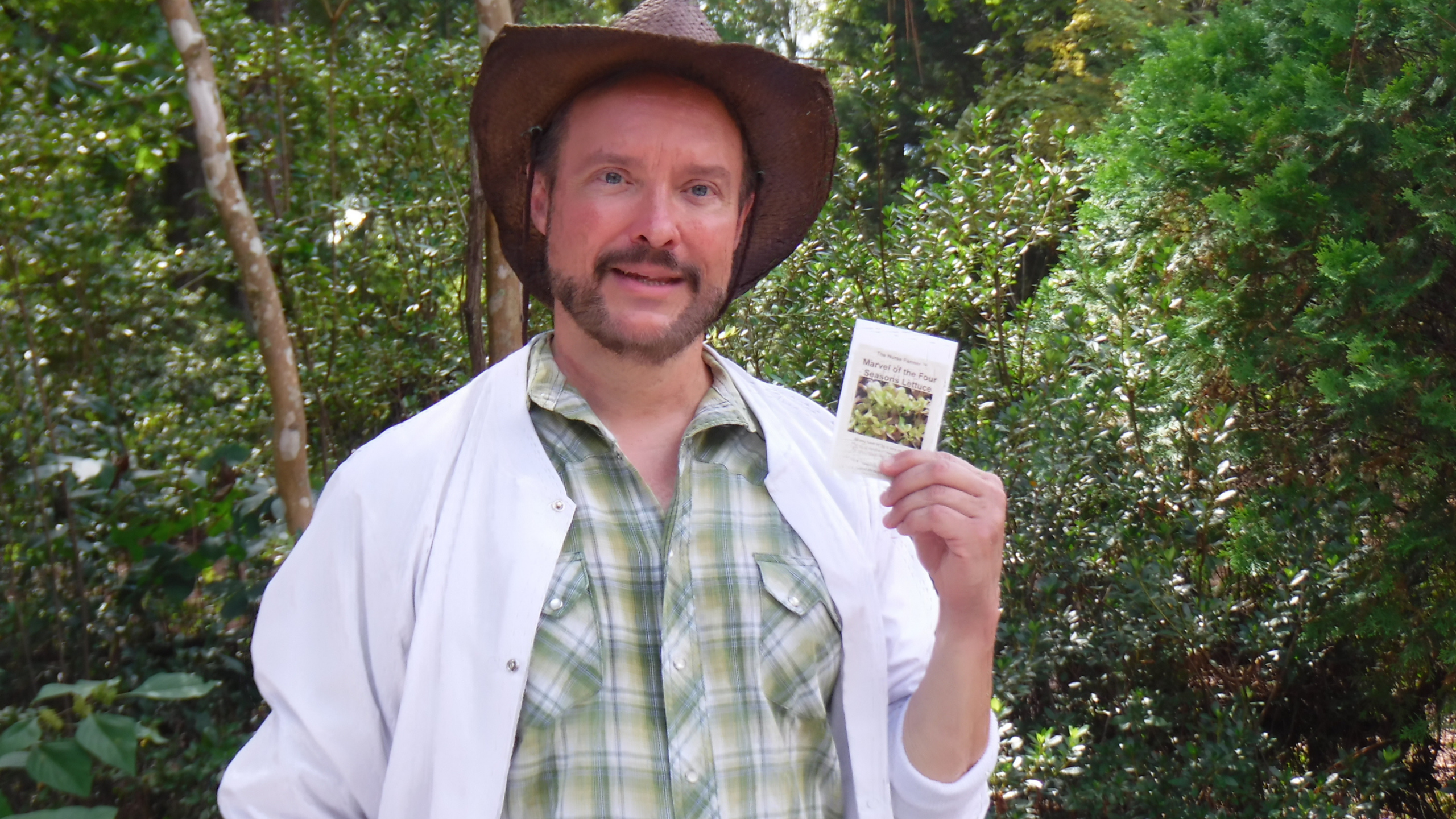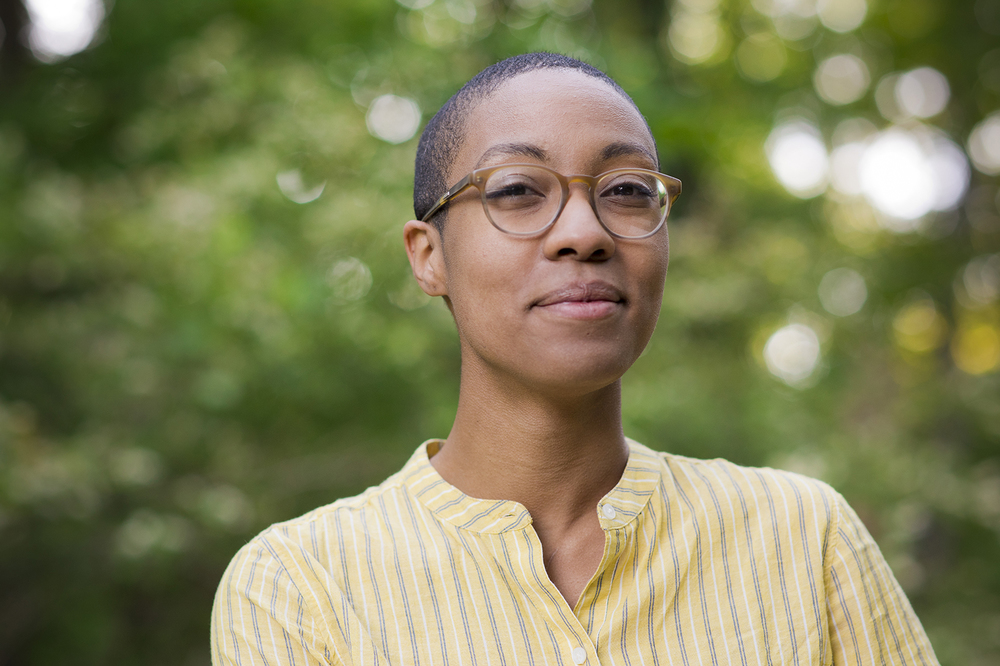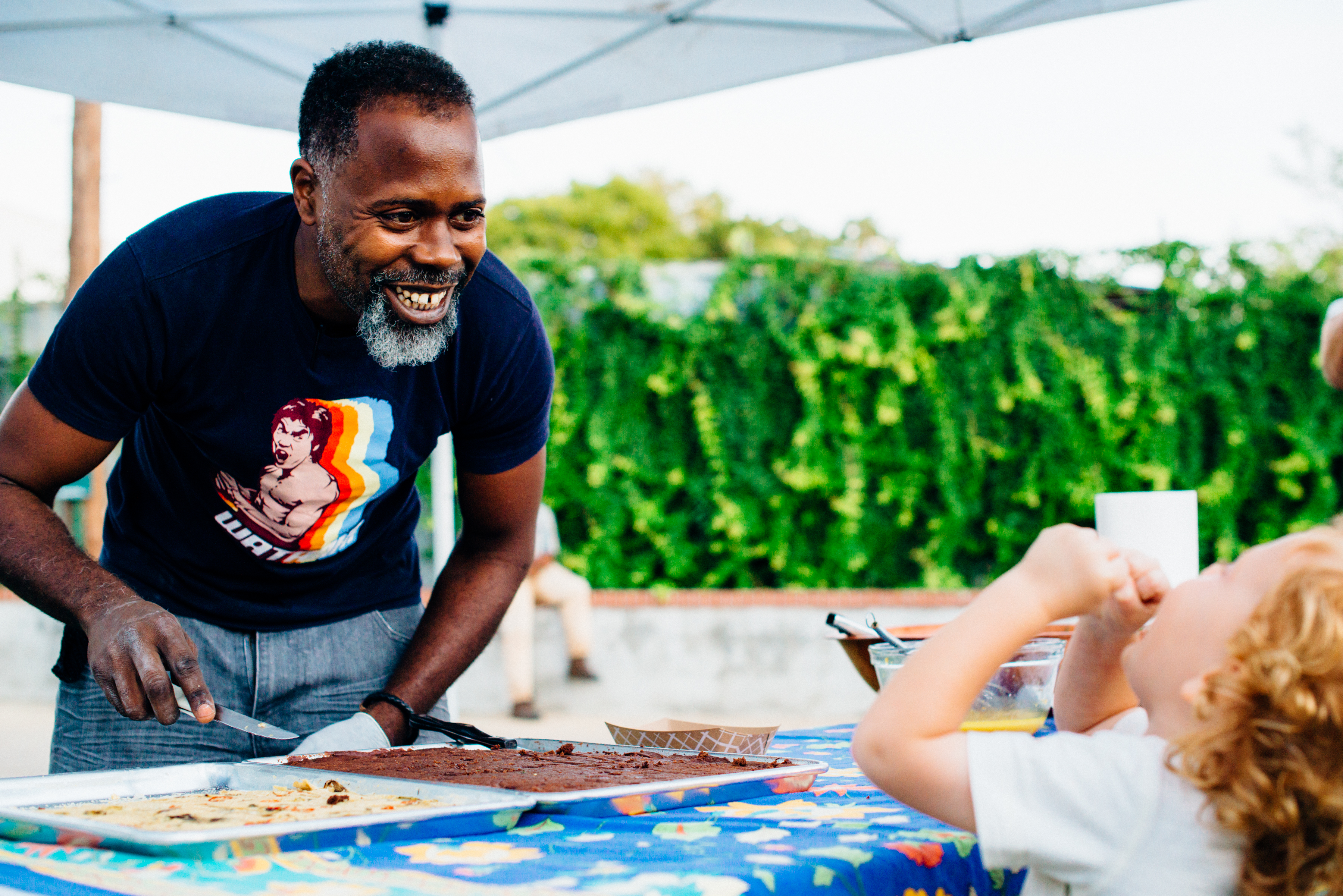For more about the ASAN Member Profiles series, click here. For a full collection of the profiles published thus far, click here.
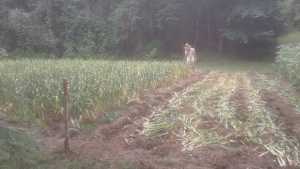
For those of you who attended our 2017 Food & Farm Forum, you may recall seeing beautiful, enormous bulbs of garlic during our market night, they were quite a hit! Those beauties were from Martha and Paul’s Farm, Viperville Vegetable Farm, located in Atmore, AL. They acquired their first bulbs from an elderly fellow who grew it in his backyard in Louisiana. Technically, it is an elephant garlic, which they market as a Creole Garlic since it packs a little punch.
How long have you been a member of ASAN?
Since 2004
Why did you become a member of ASAN?
I got interested in the sustainable ag movement when I lived in Maryland, when I moved to Alabama. I was so glad to learn ASAN existed.
What is your favorite ASAN event, and why?
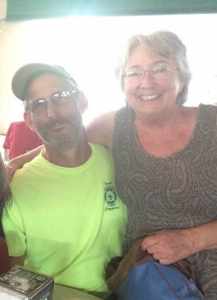
Working the ASAN booth at Earth Day in Mobile, you get to meet and talk to all kinds of people interested in our food system.
What do you love about being part of ASAN / part of the food movement in Alabama?
There are so many things!
I love the sense of community, knowing other people care about where our food comes from and how it is grown. Seeing young people engaged, that’s exciting. The energy. Acknowledging the traditions of Southern life and culture, and the desire to uphold it. I have a deep appreciation for The Poarch Band of Creek Indians who live near us, there’s a movement afoot in that world of food sovereignty. They’ve picked up the torch and established a farmer’s market to connect food and people. I love witnessing the excitement and appreciation people in the community have for the effort that goes into growing organic produce. I credit The Poarch for taking the lead on this. And, I love the focus that has shifted to local ingredients and buying in bulk in rural areas.
What frustrates or challenges you about the work you do, and/or the broader context in which you do it? What keeps you up at night? (related to food / ag specifically, not just in general)
I don’t believe our current agriculture system is sustainable. I suspect we’ll start to see the Midwest falter because of tariffs along with other areas of the country. The consequences of conventional production of soybeans, corn and cotton are beginning to catch up with us
*Later, Martha shared an article that further cements the reason for her concerns about conventional ag, click here to read.
What excites you about the future of ASAN?
The fact that it exists within the region. It’s exciting to see a meeting of the minds, if you will, coming together to collaborate and bring attention to important issues about sustainability in agriculture and food systems
Describe your farm – where is it, how big is it, what do you raise, who helps manage it with you? How long have you had your farm?
After farming in southern Maryland for 12 years, we moved to Mobile, AL to be near my family. In Mobile we started with 5 acres on the side while Paul went back to school to get his teaching degree. When our daughter graduated 12 years ago we found a place to farm in Baldwin County, two years later we moved there. We grow veggies in a 30’x100’ hoop house, which helps control disease and bugs. We grow enough produce to feed ourselves, a couple of wholesale customers, and sell at an area farmer’s market. We also grow a ½ acre of garlic, and another 1 ½ acres of sweet corn, popcorn, gourds for the Poarch Creek Indians to use for classes, Seminole Pumpkins, and sweet potatoes—we’ve made an intentional shift toward less perishable crops.
We practice organic methods but are not certified at this time because we don’t gross enough yearly. Last year we were pretty close. In Maryland, we were certified organic, so we know it’s very possible to do on a commercial scale. It may cost a little more, but not that much.
What made you want to be a farmer?
For my dissertation research in agricultural anthropology, I wrote about farmers adapting to urban growth in the Washington, DC area. I worked on 9 different farms in the DC area, spent time on 25 others, and have always grown vegetables when I had access to any ground. Paul has an agriculture degree from Iowa State. Before we were a couple, we farmed together.
Is it what you thought it would be like? If not, why?
It’s exactly what I thought it would be, and more.
What’s your favorite crop to grow? Where do you really shine / what is your specialty?
I’ll try anything! Paul’s specialty is our garlic, this is where he shines. When we started growing it in 2002, he had to hide the seed stock so I wouldn’t cook with it!
How do you reach your customers, and grow your business?
Marketing locally produced food can be a challenge since it requires a grower to sell outside traditional marketing channels. We do some direct marketing at a local farmers’ market and local wholesaling with a few roadside stands, a CSA and a health food store
What’s the best piece of advice you’ve ever been given re farming?
Start small!
What tool, piece of equipment, etc., could you not live without?
I love my broad fork, even though I can’t cover enough ground with it, I love what it does. As opposed to tilling, it creates less destruction to the structure of the soil. There’s a quick turnaround time. And, it’s most useful in small area, especially in the hoop house.
What about being a farmer do you love the most? What keeps you going? What in a given day/week/month/year do you look forward to most?
Seeing something come out of the ground is so cool. I love learning about the insects and how mother nature benefits, and how it exists in harmony. I love it when kids are around to see that too! The bounty, the reward, and being able to taste it. How it is all connected – the soil, the plants, the weather, insects, the wildlife
What keeps you up at night / what challenges or frustrates you the most / what makes you want to quit?
What keeps us up at night now is different than what it used to be. When we were full-time farmers in MD, our success hinged on the success of our crops. August was our barometer, if we hadn’t met the total of our yearly mortgage note due in December– we definitely lost sleep. Now, it’s different. Since the crops are not our only source of income, we have some breathing room. This also means we get to manage what we do to grow better ingredients, and experiment with different methods.
And, I’ve never wanted to quit. I’d rather re-adjust.
How has ASAN supported your efforts? What could ASAN be doing to better support your efforts and the efforts of others like you?
ASAN has helped bring attention to the issues surrounding sustainability, and there’s room for even more to be done. I’d like to see more of a concerted effort to reach out to conventional farmers about the importance of sustainable production. Involve the Ag secretary and reach across political lines. I would love to see more folks brought into the fold. It is more than just convincing the conventional watermelon farmer to grow organic, but getting more people to recognize the need for sustainability.
